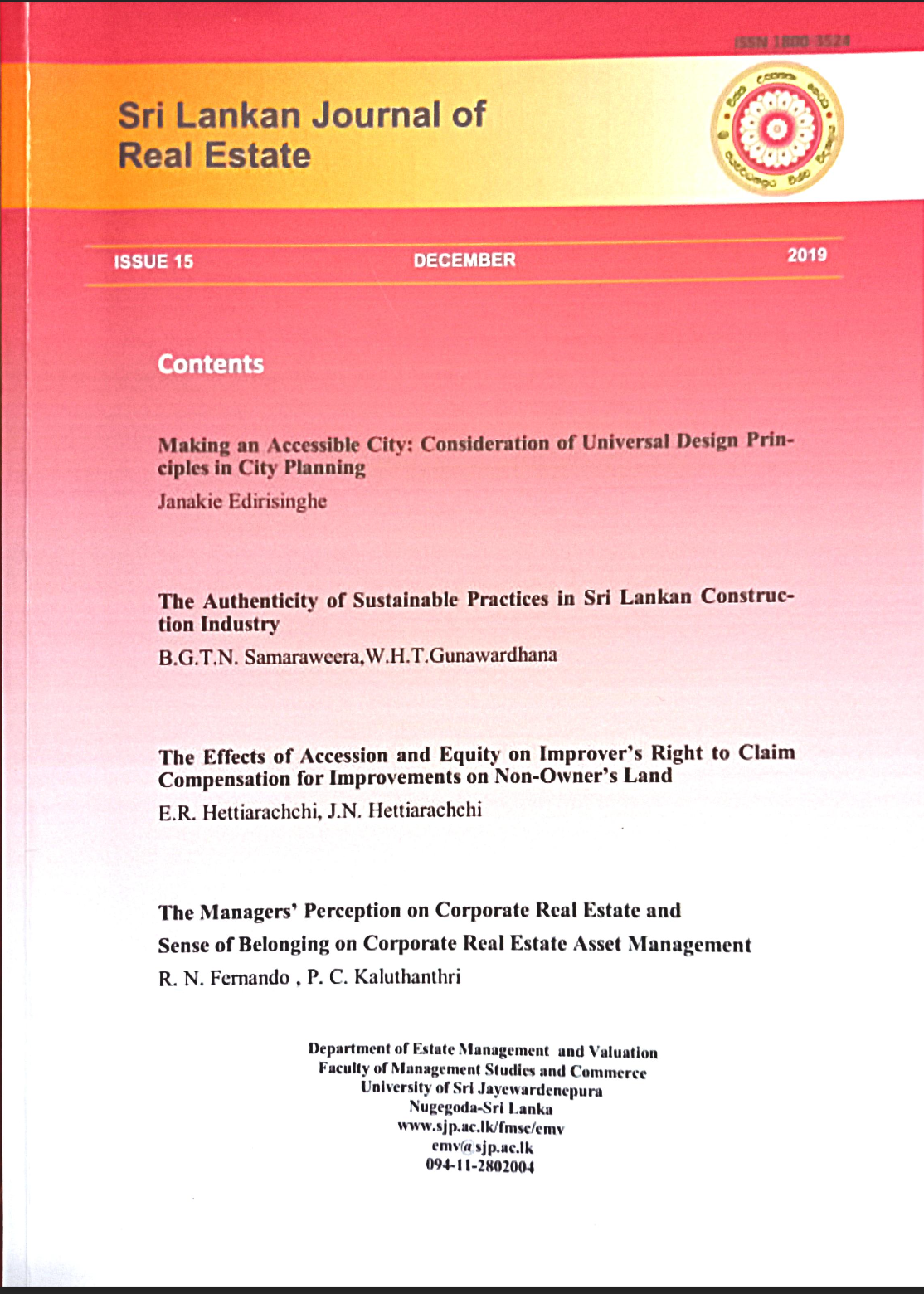Making an Accessible City: Consideration of Universal Design Principles in City Planning
Abstract
In the publication titled Building for Everyone: A Universal Design Approach, it is said that, “People are diverse thus their abilities are similarly diverse. Illness or disability (whether temporary or permanent) can affect characteristics of such persons like mobility, dexterity, reach, balance, strength, stamina, sight, hearing, speech, touch, knowledge, understanding, memory, or sense of direction. Further it says “People of diverse abilities should be able to use
buildings and places comfortably and safely, as far as possible without special assistance. People should be able to find their way easily, understand how to use building facilities such as intercoms or lifts, and know what is a pedestrian facility, and know where they may encounter traffic”. Elderly and disabled people encounter many problems, in using the facilities and their mobility. These vary according to the types of disability they have, in urban spaces and their social surroundings.


